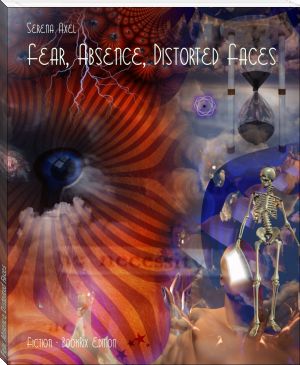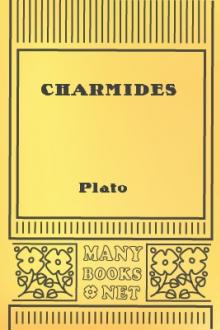The Smoky God - Willis George Emerson (english reading book TXT) 📗

- Author: Willis George Emerson
- Performer: -
Book online «The Smoky God - Willis George Emerson (english reading book TXT) 📗». Author Willis George Emerson
MY name is Olaf Jansen. I am a Norwegian, although I was born in the little seafaring Russian town of Uleaborg, on the eastern coast of the Gulf of Bothnia, the northern arm of the Baltic Sea.
My parents were on a fishing cruise in the Gulf of Bothnia, and put into this Russian town of Uleaborg at the time of my birth, being the twenty-seventh day of October, 1811.
My father, Jens Jansen, was born at Rodwig on the Scandinavian coast, near the Lofoden Islands, but after marrying made his home at Stockholm, because my mother’s people resided in that city. When seven years old, I began going with my father on his fishing trips along the Scandinavian coast.
Early in life I displayed an aptitude for books, and at the age of nine years was placed in a private school in Stockholm, remaining there until I was fourteen. After this I made regular trips with my father on all his fishing voyages.
My father was a man fully six feet three in height, and weighed over fifteen stone, a typical Norseman of the most rugged sort, and capable of more endurance than any other man I have ever known. He possessed the gentleness of a woman in tender little ways, yet his determination and will-power were beyond description. His will admitted of no defeat.
I was in my nineteenth year when we started on what proved to be our last trip as fishermen, and which resulted in the strange story that shall be given to the world,— but not until I have finished my earthly pilgrimage.
I dare not allow the facts as I know them to be published while I am living, for fear of further humiliation, confinement and suffering. First of all, I was put in irons by the captain of the whaling vessel that rescued me, for no other reason than that I told the truth about the marvelous discoveries made by my father and myself. But this was far from being the end of my tortures.
After four years and eight months’ absence I reached Stockholm, only to find my mother had died the previous year, and the property left by my parents in the possession of my mother’s people, but it was at once made over to me.
All might have been well, had I erased from my memory the story of our adventure and of my father’s terrible death.
Finally, one day I told the story in detail to my uncle, Gustaf Osterlind, a man of considerable property, and urged him to fit out an expedition for me to make another voyage to the strange land.
At first I thought he favored my project. He seemed interested, and invited me to go before certain officials and explain to them, as I had to him, the story of our travels and discoveries. Imagine my disappointment and horror when, upon the conclusion of my narrative, certain papers were signed by my uncle, and, without warning, I found myself arrested and hurried away to dismal and fearful confinement in a madhouse, where I remained for twenty-eight years — long, tedious, frightful years of suffering!
I never ceased to assert my sanity, and to protest against the injustice of my confinement. Finally, on the seventeenth of October, 1862, I was released. My uncle was dead, and the friends of my youth were now strangers. Indeed, a man over fifty years old, whose only known record is that of a madman, has no friends.
I was at a loss to know what to do for a living, but instinctively turned toward the harbor where fishing boats in great numbers were anchored, and within a week I had shipped with a fisherman by the name of Yan Hansen, who was starting on a long fishing cruise to the Lofoden Islands.
Here my earlier years of training proved of the very greatest advantage, especially in enabling me to make myself useful. This was but the beginning of other trips, and by frugal economy I was, in a few years, able to own a fishing-brig of my own. For twenty-seven years thereafter I followed the sea as a fisherman, five years working for others, and the last twenty-two for myself.
During all these years I was a most diligent student of books, as well as a hard worker at my business, but I took great care not to mention to anyone the story concerning the discoveries made by my father and myself. Even at this late day I would be fearful of having any one see or know the things I am writing, and the records and maps I have in my keeping. When my days on earth are finished, I shall leave maps and records that will enlighten and, I hope, benefit mankind.
The memory of my long confinement with maniacs, and all the horrible anguish and sufferings are too vivid to warrant my taking further chances.
In 1889 I sold out my fishing boats, and found I had accumulated a fortune quite sufficient to keep me the remainder of my life. I then came to America.
For a dozen years my home was in Illinois, near Batavia, where I gathered most of the books in my present library, though I brought many choice volumes from Stockholm. Later, I came to Los Angeles, arriving here March 4, 1901. The date I well remember, as it was President McKinley’s second inauguration day. I bought this humble home and determined, here in the privacy of my own abode, sheltered by my own vine and fig-tree, and with my books about me, to make maps and drawings of the new lands we had discovered, and also to write the story in detail from the time my father and I left Stockholm until the tragic event that parted us in the Antarctic Ocean.
I well remember that we left Stockholm in our fishing-sloop on the third day of April, 1829, and sailed to the southward, leaving Gothland Island to the left and Oeland Island to the right. A few days later we succeeded in doubling Sandhommar Point, and made our way through the sound which separates Denmark from the Scandinavian coast. In due time we put in at the town of Christiansand, where we rested two days, and then started around the Scandinavian coast to the westward, bound for the Lofoden Islands.
My father was in high spirit, because of the excellent and gratifying returns he had received from our last catch by marketing at Stockholm, instead of selling at one of the seafaring towns along the Scandinavian coast. He was especially pleased with the sale of some ivory tusks that he had found on the west coast of Franz Joseph Land during one of his northern cruises the previous year, and he expressed the hope that this time we might again be fortunate enough to load our little fishing-sloop with ivory, instead of cod, herring, mackerel and salmon.
We put in at Hammerfest, latitude seventy-one degrees and forty minutes, for a few days’ rest. Here we remained one week, laying in an extra supply of provisions and several casks of drinking-water, and then sailed toward Spitzbergen.
For the first few days we had an open sea and a favoring wind, and then we encountered much ice and many icebergs. A vessel larger than our little fishing-sloop could not possibly have threaded its way among the labyrinth of icebergs or squeezed through the barely open channels. These monster bergs presented an endless succession of crystal palaces, of massive cathedrals and fantastic mountain ranges, grim and sentinel-like, immovable as some towering cliff of solid rock, standing; silent as a sphinx, resisting the restless waves of a fretful sea.
After many narrow escapes, we arrived at Spitzbergen on the 23d of June, and anchored at Wijade Bay for a short time, where we were quite successful in our catches. We then lifted anchor and sailed through the Hinlopen Strait, and coasted along the NorthEast-Land.[2]
[2 It will be remembered that Andree started on his fatal balloon voyage from the northwest coast of Spitzbergen.]
A strong wind came up from the southwest, and my father said that we had better take advantage of it and try to reach Franz Josef Land, where, the year before he had, by accident, found the ivory tusks that had brought him such a good price at Stockholm.
Never, before or since, have I seen so many sea-fowl; they were so numerous that they hid the rocks on the coast line and darkened the sky.
For several days we sailed along the rocky coast of Franz Josef Land. Finally, a favoring wind came up that enabled us to make the West Coast, and, after sailing twenty-four hours, we came to a beautiful inlet.
One could hardly believe it was the far Northland. The place was green with growing vegetation, and while the area did not comprise more than one or two acres, yet the air was warm and tranquil. It seemed to be at that point where the Gulf Stream’s influence is most keenly felt.[3]
[3 Sir John Barrow, Bart., F.R.S., in his work entitled “Voyages of Discovery and Research Within the Arctic Regions,” says on page 57: “Mr. Beechey refers to what has frequently been found and noticed — the mildness of the temperature on the western coast of Spitzbergen, there being little or no sensation of cold, though the thermometer might be only a few degrees above the freezing-point. The brilliant and lively effect of a clear day, when the sun shines forth with a pure sky, whose azure hue is so intense as to find no parallel even in the boasted Italian sky.”]
On the east coast there were numerous icebergs, yet here we were in open water. Far to the west of us, however, were icepacks, and still farther to the westward the ice appeared like ranges of low hills. In front of us, and directly to the north, lay an open sea.[4]
[4 Captain Kane, on page 299, quoting from Morton’s Journal on Monday, the 26th of December, says: “As far as I could see, the open passages were fifteen miles or more wide, with sometimes mashed ice separating them. But it is all small ice, and I think it either drives out to the open space to the north or rots and sinks, as I could see none ahead to the north.”]
My father was an ardent believer in Odin and Thor, and had frequently told me they were gods who came from far beyond the “North Wind.”
There was a tradition, my father explained, that still farther northward was a land more beautiful than any that mortal man had ever known, and that it was inhabited by the “Chosen.”[5]
[5 We find the following in “Deutsche Mythologie,” page 778, from the pen of Jakob Grimm; “Then,the sons of Bor built in the middle of the universe the city called Asgard, where dwell the gods and their kindred, and from that abode work out so many wondrous things both on the earth and in the heavens above it. There is in that city a place called Illidskjalf, and when Odin is seated there upon his lofty throne he sees over the whole world and discerns all the actions of men.”]
My youthful imagination was fired by the ardor, zeal and religious fervor of my good father, and I exclaimed: “Why not sail to this goodly land? The sky is fair, the wind favorable and the sea open.”
Even now I can see the expression of pleasurable surprise on his countenance as he turned toward me and asked: “My son, are you willing to go with me and explore — to go far beyond where man has ever ventured?” I answered affirmatively. “Very well,” he replied. “May the god Odin protect us!” and, quickly adjusting the sails, he glanced at our





Comments (0)